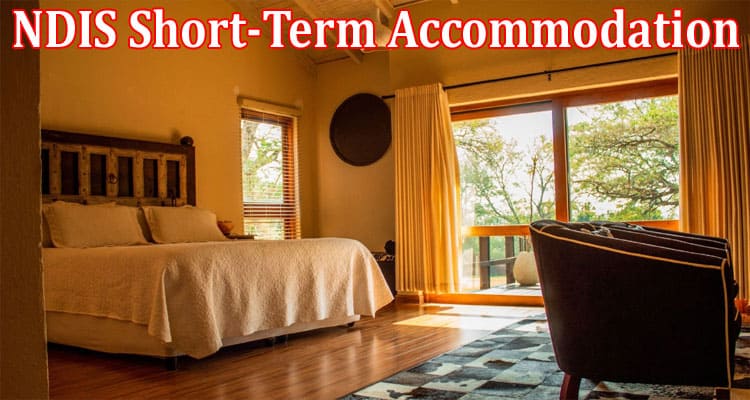NDIS Short-Term Accommodation: What Is It and How Does It Work?
Caring for someone can be tiring, as is receiving care in the same setting. Eventually, everyone needs a change of scenery.
That’s where NDIS short-term accommodation can help. It’s like a home away from home, providing you and your carer with much-needed respite for up to 28 days every year.
NDIS Short-Term Accommodation: What Is It?
NDIS short-term accommodation refers to short- to medium-term stays in NDIS-funded settings. Instead of staying in your own home, you live with a different team of carers who look after you (usually when your regular support workers aren’t available).
The term “NDIS short-term accommodation” can be confusing. That’s because you can arrange longer stays. Carers at these locations implement your regular care plan so you shouldn’t notice any big changes in your lifestyle.
In NDIS short-term accommodation, you live in a community setting. As such, you’ll have a chance to make new friends while getting all the support you need. Most NDIS accommodation is vibrant and close to local attractions, amenities and recreational activities for you to explore so there’s always something to do.
What Does NDIS Short-Term Accommodation Include?
If you qualify for NDIS Short-Term Accommodation, you’ll get all the services you get as part of your regular at-home care package. These could include:
- Personal care – services that help you wash, go to the toilet, get dressed and undressed, and shave
- Medication management – services that assist with preparing and administering your medication throughout the day
- Lifestyle and recreational assistance – services that transport you away from the accommodation for activities and events in the local area
- Nursing assistance – medical services including podiatry, wound care, and rehabilitation
- Assistance with goals – help with achieving the things you want to do in life
The NDIS funds up to 28 days of short-term accommodation each year. Under the rules, you can stay up to a maximum of 14 days continuously in respite care, but you are free to divide up the time however you want. You could take four week-long breaks per year if you wanted while your carers go on holiday or spend time pursuing their hobbies.
Who Should Choose NDIS Short-Term Accommodation?
Whether NDIS shooter-term accommodation is suitable for you depends on your individual circumstances. If you choose to use this service, you aren’t locked into it. If you discover it’s not for you, you can always remain at home in the future.
The following are some situations in which NDIS short-term accommodation may be appropriate:
- When you want to meet new people and try new things
Spending all your time at home can make every day feel the same. Going to NDIS short-term accommodation helps to mix things up a little, letting you experience new activities and get to know new people. It can be a great way to break the monotony and enjoy yourself.
- You have goals you want to achieve
The NDIS isn’t just about care: it’s also about helping people live their best lives. Short-term accommodation is an environment that facilitates moving towards your aims and objectives as part of the service. It can be a great way to achieve goals set out in your NDIS plan.
- Your informal supports and carers need a break
Lastly, NDIS short-term accommodation may be necessary when your carers and supports need a break. Caring for someone year-round can be tiring, both physically and emotionally. A short break can help boost care quality long-term, improving outcomes for everyone.
How Do You Get Short-Term Accommodation Included In Your Plan?
To get short-term accommodation included in your plan, you must request it in your plan review meeting. You’ll need to explain why you need short-term accommodation using the reasons outlined in the previous section. Administrators are more likely to consider your case if they believe that your informal network of carers needs a break, or that you personally require a change of scenery to improve your life.
To support your application, bring as many relevant documents to the planning meeting as possible. Having a letter from a psychologist or occupational therapist can improve your chances of going to alternative NDIS accommodation. You should also bring letters from your informal supports explaining your care arrangements and how short-term accommodation can help.
When collecting information, consider how it helps you make the case that respite care is necessary and reasonable. If you can satisfy these conditions, the presiding officer is more likely to approve your request.
Where Does The NDIS Get Funding For Short-Term Accommodation?
The NDIS gets short-term accommodation funding from the Core Support Category. Therefore, you will receive funding in line with the amount of support you need during your stay. Generally speaking, the more intense the care you require, the more respite breaks your informal supports will receive.
Let’s say, for instance, that you have a high level of support and that your spouse is your primary carer. Because of your situation, the NDIS may offer you the full 28 days per year to ensure that your care situation remains sustainable long-term.
By contrast, suppose that the NDIS assessments determine that your care needs are mild. In this situation, they might provide your primary caregiver with enough funding to spend one night away per month, but not more than that.
Where Are Respite Care Facilities?
The NDIS operates respite care across the country. Some are hotel-style facilities, while others look like large homes. Each offers a unique atmosphere for guests to enjoy.
If you are considering NDIS short-term accommodation, take your time to research each facility. Make sure that you find one that can meet your specific support needs. Most have websites that explain their services in more detail and what you can expect from them.
If you get stuck, you can enlist the help of a support coordinator. They can help you get the right funding and connect you with the appropriate short-term accommodation.




